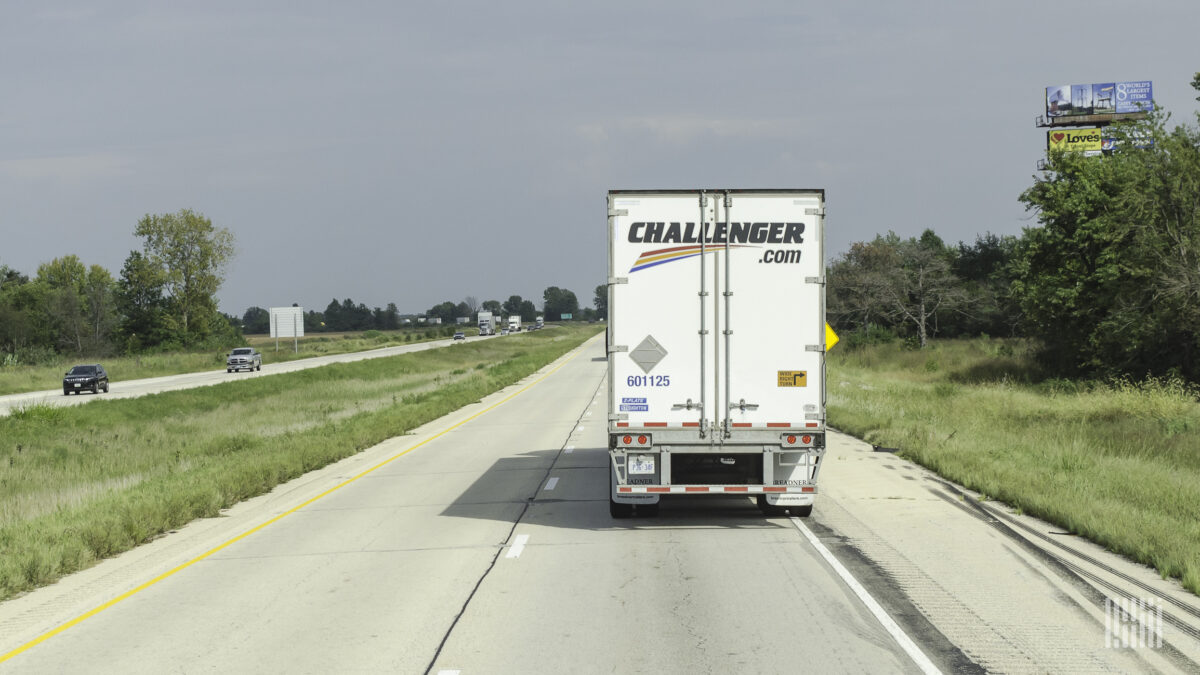Like many cross-border trucking companies in Canada, Ontario-based Star Van Systems feared it would lose a chunk of its drivers — up to 15% — to the COVID-19 vaccine mandate taking effect at the U.S. border on Saturday.
But something happened as the deadline approached: Drivers started getting vaccinated, said General Manager Brenden Smith. Some even went to the U.S. to get a single-dose Johnson and Johnson vaccine, which isn’t widely available in Canada.
“A lot of guys have made the choice to end up getting vaccinated or are now in the process of that,” Smith said. “So we’re only expected to lose about, I’d say, 3% to 4% of our drivers over this.”
As a result, Smith isn’t that worried about the mandate. The 100-truck carrier, which specializes in hauling fresh produce between the U.S. and Canada, is still able to meet its commitments to customers, he said.
“We’ve honored those rates that we’ve stuck with for the last year — we haven’t jacked up those rates — and we’ve committed to the same volumes,” he said.
It’s unclear just how typical Star Van Systems is among Canadian trucking companies, as it may take weeks to fully understand how many unvaccinated drivers elect to stay that way. The Canadian Trucking Alliance has projected that 10%-15% percent of drivers will leave cross-border freight instead of getting vaccinated, reflecting rates of the general population. Canadian drivers handle about 75% of the freight that moves between the U.S. and Canada.
Anecdotally, there appear to be significant regional differences. For Ontario-based carriers, who handle the vast majority of cross-border freight, vaccination rates above 90% above aren’t unusual. Multiple carrier executives have told FreightWaves that they’ve lost more driver capacity because of COVID-19 isolation requirements than the mandates.
“The vaccine mandate is kind of a hot topic right now, but honestly it’s not even in my top three biggest issues right now,” said an executive at a large Canadian carrier, who asked not to be named.
‘There are those that we are not giving the capacity to right now,’ says Challenger CEO

At Challenger Motor Freight, one of Canada’s largest trucking and logistics companies, drivers and other employees have been getting vaccinated at one-site popup clinics. It has helped bring up the carrier’s driver vaccination rate to between 90% and 95%, said CEO Dan Einwechter.
But even with that level of vaccination, Einwechter said the company’s asset-based trucking operation — with a fleet of over 1,300 power units — is stretched to the limit due to demand from customers.
“There are delays on pickup times, delays on delivery times,” he said. “And there are those that we are not giving the capacity to right now.”
While Challenger is in a decent position in terms of vaccination rates, Einwechter said there are plenty of other carriers facing a massive drop in capacity. The cumulative effect, he said, could be disastrous to the supply chain.
“I don’t want to a be fear-monger, but we need to be deeply concerned about the ramifications of this,” he said.
Alberta carrier says mandate costing it one-third of cross-border capacity
At Evans Trucking, in Coaldale, Alberta, nearly a third of the 36 drivers are unvaccinated, said General Manager Reece Evans.
Evans said he had expected that closer to 20% of his drivers would elect to remain unvaccinated. But more have held out.
“Some guys are backing out of it,” he said. “They’re like, ‘Oh, yeah, I’ll probably get vaccinated’ and closer to the date, they’re like, ‘You know what, I don’t want to do that.’”
The flatbed carrier typically runs lumber from western Canada to the U.S., returning with an array of manufactured goods. Evans has secured domestic runs that will temporarily keep his unvaccinated drivers moving, though the rates are lower.
Evans, who isn’t vaccinated , said he has no issue with the drivers opting out of the shot. He blames the U.S. and Canadian governments for imposing the mandates.
“We strongly believe in freedom of choice, and that nobody should have to actually be coerced into making a decision that they don’t want to for their livelihood,” said Evans. “It’s a personal decision.”
Evans thinks his unvaccinated drivers will be able to move cross-border freight again soon. The disruption caused by their absence, along with protests planned for next week, will cause the U.S. and Canadian governments to roll back their mandates.
However, the Canadian government has gone a step further. It plans to require vaccines for all employers regulated by the federal government, which includes trucking companies that move freight across provincial or national borders. It would mean that Evans would only be able to employ vaccinated drivers.
Evans said he believes that mandate will fail, too. And what if it goes ahead?
“It’s one of those things where you can’t really answer it until you get there,” he said. “But, you know, will I close the doors of the company because I will not force anyone to get a vaccine? I don’t know. But it’s not me forcing it at that point, it’s the government.”










